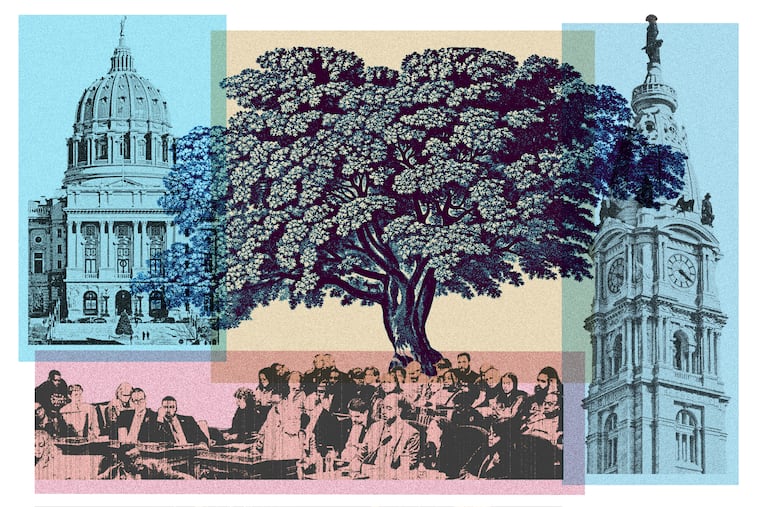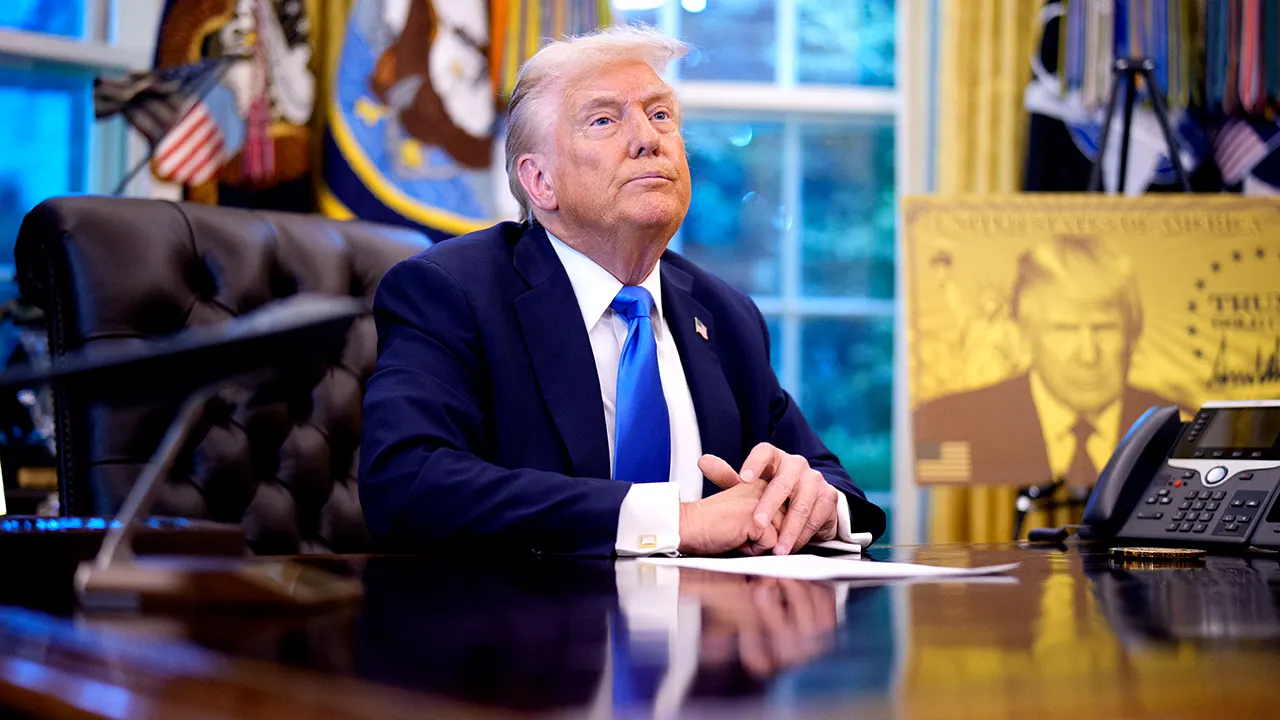
Long before the construction of the Pennsylvania state Capitol, City Hall, or even Independence Hall, people in this area had a designated place to do the work of government and politics. At a spot along the Delaware River, the sachems of the Lenape people met to discuss the issues of the day, settle disputes, and forge agreements.
They called it Shackamaxon — the place where the chiefs meet.
It was at Shackamaxon that traditional accounts claim William Penn and Chief Tamanend forged their famous peace accord. Today, the old meeting ground is a park named for that treaty. A plaque resides where the great elm, blown over in a storm in the early 19th century, once stood. And these days, we do politics elsewhere.
Our sachems head to Broad and Market or Harrisburg, meeting in two of the grandest government buildings in the country, to do the people’s business.
This new column, named in honor of that old Lenape place of power, will try to illuminate and comment upon the arguments and agreements of our modern-day chiefs.
While many get into journalism in the hope of covering national politics, that’s never really been my focus. It is certainly true that Congress, the president, and the U.S. Supreme Court can have an outsized impact on our day-to-day. In an age of masked immigration agents and crippling tariffs, that much is hard to deny.
But when it comes to transportation, housing, education, public safety, and economic development, the local levels of power matter. Just look at the shifting schedules for your local SEPTA bus or train if you have any doubt.
Whether they’re talking about Harrisburg or City Hall, people keep saying they need more from their elected officials.
State politics often seem like a quagmire, and the Capitol is sometimes seen as a place where good ideas go to die. Regional and partisan resentment motivates too much of the decision-making there. Even talented leaders like former Gov. Ed Rendell have ended their tenures feeling like they left important priorities on the table.
Meanwhile, the sachems over at Broad and Market have a different problem. They may manage to pass a budget on time every year, and you don’t see Councilmember Brian J. O’Neill emulating state Senate Majority Leader Joe Pittman by slamming other neighborhoods. But it is too easy to enact bad ideas.
If a member of Council wants to stymie an affordable housing project, hinder small businesses, cancel a pedestrian safety initiative, or delay a desperately needed bus service shake-up, they are likely to find enthusiastic and, regrettably for the rest of us, unquestioning support from their colleagues.
Together, these two legislative bodies tend to have a stifling effect on Philadelphia.
According to the Brookings Institution, our region is near the bottom when it comes to both economic growth and economic mobility. This lack of vitality has not led to a lower cost of living, either. Philadelphia has the third-largest increase in housing values in the country, and the local market seems to be pushing more and more families off the housing ladder.
Yet, in the face of these challenges, our elected leaders often seem reluctant to challenge existing orthodoxies and put forth innovative ideas. Worse still, they often display a level of indignation when called out by their constituents.
Take, for example, the opening fall session for Philadelphia City Council earlier this month. During a typical meeting, after the bills and resolutions are introduced, there is a public comment session that usually swings between entertaining and illuminating. That Thursday, however, Council decided it was time to talk back.
First up was Council President Kenyatta Johnson, who responded to the charge that he and his members don’t often utilize public transportation, even while encouraging other Philadelphians to do so.
Johnson defended himself and other members by saying they grew up in the city and have a long history of riding SEPTA buses and trains. But while Council members have been strong advocates for transit funding in Harrisburg, they have, at times, undermined the system, dragging their feet on needed service improvements.
Johnson’s statement also reinforced the perception that riding mass transit is something folks age into and out of. That’s not the attitude we need to ensure the system is able to thrive despite the lack of support in the Capitol.
Curfew kerfuffle
The new midnight curfew in the 7th and 8th Districts also proved to be a sensitive topic.
Food truck owners Edward Bonilla and José Luis Reinoso spoke out on the way the curfew in parts of Kensington has hurt their business and workforce, urging the body not to expand the ban into more neighborhoods. Council sat through their testimony silently.
Then Jennifer McDonald, an organizer with the public interest law firm Institute for Justice, read a series of quotes from small-business owners and advocates who did not have the time to attend themselves. This time, it was 8th District Councilmember Cindy Bass who pounced, asking McDonald whether she was from Philadelphia.
Bass’ question was only the opening parochial parry. The 4th District’s Curtis Jones Jr. and the 7th District’s Quetcy Lozada also jumped at the opportunity to cast any opposition to their broad curfew as outside agitation, rather than grassroots reaction. Jones mentioned liquor-by-the-drink outlets that open at 7 a.m., a time frame that wouldn’t be affected by the proposal. Lozada gave a speech saying she welcomes businesses that follow the law and rejects nuisance business.
Few would disagree with that statement. In fact, a more targeted attempt to curb nuisance business from Councilmember Katherine Gilmore Richardson faced no opposition from the public during the same hearing.
The midnight curfew imposed by Bass and Lozada, however, affects honest entrepreneurs and scofflaws alike. In a city like Philadelphia, which is filled with hospitals, warehouses, restaurants, and other places where people work into the night, eliminating these options makes little sense.
It is telling that rather than defend the proposal on its merits, Council members chose instead to steer the debate toward the kind of insular, us-vs.-them provincialism that is too often used to end debates in Philadelphia rather than continue the conversation. In a city where asking where you went to high school is a classic icebreaker, this tactic has had plenty of success for Council.
Unfortunately for them, it won’t deter this columnist.
I grew up here in Frankford. At a time when journalism is increasingly cast as an Ivy League vocation, my college degree came courtesy of Temple University and Community College of Philadelphia. Like most of Council, I graduated from a Philadelphia public high school.
Unlike the eminent members, however, I still ride SEPTA almost every day, and remember what it’s like to come off a late shift hungry.
In our modern Shackamaxon, the chiefs still make the decisions. This column, hopefully, can at least inspire them to think twice.



